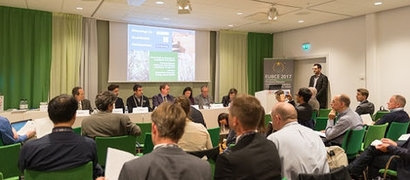
The brief finds that large amounts of bioenergy can be produced while the world meets its food needs and climate goals and that bioenergy can also promote development, create jobs, enrich the land and improve livelihoods. Bioenergy is key to sustainable development, since it enhances energy access and reduces reliance on fossil fuels, thereby helping to mitigate climate change. It currently makes up a large share of the cost-effective options for increasing renewable energy use.
Bioenergy has a role to play in every energy sector – in the power sector for flexibility to balance wind and solar, in process heat and materials for industry, in heating systems and stoves for buildings, and displacing fossil fuels for transport - especially for aviation, marine shipping and heavy freight transport. It can help meet UN sustainable development goals for climate change action, food security, sustainable land use, and access to affordable, reliable, modern sustainable energy for all.
Increasing output per unit of land, restoring degraded land and reducing losses in the food chain, can make land available for additional production of energy crops while enhancing ecosystem services. Bioenergy can also be produced sustainably from large amounts of farm and forest residues associated with expanding food and lumber production, as well as from solid and organic waste in cities.
Sustainable forest management can keep forests healthy and growing while allowing substantial amounts of wood to be extracted for material and energy use.
Several key approaches can support sustainable bioenergy expansion. One is to boost yields, with extension services to promote adoption of modern farming techniques and secure land tenure to give farmers financial incentives to manage their land for high yields while keeping soil productive. A second approach is better use of residues and waste on farms and in forests. A third approach to sustainable bioenergy is restoration of degraded or marginal land which is not in productive use. A fourth approach is reduction of waste and losses in the food chain, through better harvesting techniques, storage and refrigeration facilities, transportation infrastructure, food labeling and consumer education.
Bioenergy is part of a larger bioeconomy which also includes agriculture, forestry, fisheries, manufacturing, materials, chemicals and medicines. Policies to promote the bioeconomy may include soil mapping, biorefinery demonstration projects that combine production of energy and high-value materials, research on new food systems, renewable energy targets, mandates, loan guarantees and financial incentives. It is important to develop integrated production systems which ensure efficient use of resources and reward sustainable production and use – to minimise waste and maximise efficiency while maintaining a healthy resource base for future generations.
For additional information:

